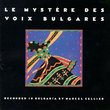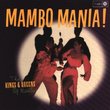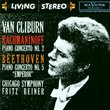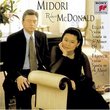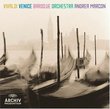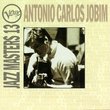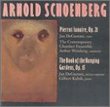| All Artists: Dietrich Fischer-Dieskau, Hugo [Composer] Wolf, Gerald Moore, Elisabeth Schwarzkopf Title: Wolf: Spanish Songbook Members Wishing: 0 Total Copies: 0 Label: Deutsche Grammophon Release Date: 2/10/1998 Genres: Pop, Classical Styles: Vocal Pop, Historical Periods, Modern, 20th, & 21st Century Number of Discs: 2 SwapaCD Credits: 2 UPCs: 028945772622, 002894577262 |
Search - Dietrich Fischer-Dieskau, Hugo [Composer] Wolf, Gerald Moore :: Wolf: Spanish Songbook
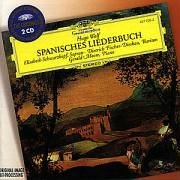 | Dietrich Fischer-Dieskau, Hugo [Composer] Wolf, Gerald Moore Wolf: Spanish Songbook Genres: Pop, Classical
|
Larger Image |
CD DetailsSimilarly Requested CDs |
CD ReviewsTAKE US TO YOUR LIEDER DAVID BRYSON | Glossop Derbyshire England | 04/25/2005 (5 out of 5 stars) "This 2-cd set comes as part of the DG Originals series of reissues `now reproduced' DG tell us `with unprecedented fidelity'. Well, they would say that, wouldn't they? Precedented or not, the recorded sound is perfectly good if slightly unstartling. The original recording dates from 1967, when Fischer-Dieskau was still somewhere near the height of his powers, and Schwarzkopf perhaps just a little past the height of hers. The recital also commemorates the very special artistry of Gerald Moore. Purely as a technical executant he may not have been quite the equal of some of today's accompanists such as Roger Vignoles or Graham Johnson, but his sheer tact and sensitivity are probably still unrivalled. Schwarzkopf has told us that for her Wolf is the `greatest' of the Lieder-writers, and that may be so for all such an expression conveys to me. To my ears, Wolf's songs are great music and great and profound art. What I find difficult to envisage is anyone loving these songs in the way we love those of Schubert, Schumann and Wolf's own pet hate Brahms. Wolf was also a musical critic, a prominent and outstandingly raucous adherent of Wagner's new musical era. A glance at the man's photograph, the head and features handsome but the expression hunted, haunted and obsessed, is enough to create alarm. He died early and insane, a victim of syphilis, but the style of his songs is highly intellectual. They don't remind me of Wagner in the least, and although he often used a flexible and non-lyrical vocal idiom he had a certain amount of melodic talent when he cared to show it, as in the first few of the `secular' songs that make up the majority of the Spanish Songbook. He was an ultra-craftsman, both in his innovative vocal writing and in his outstandingly original and resourceful piano accompaniments. It's the craftsmanship that makes the greatest impact on me, and I shouldn't wonder if that were not also what specially appealed to Schwarzkopf. Wolf's way of working was to focus on one poet at a time to the exclusion of others. The Spanish songbook takes a set of translations, by Emanuel Giebel and Paul Heyse, of 16th and 17th century Spanish folk-poetry. The first 10 of these are to religious texts, the remaining 34 to secular - all songs about love, mainly unrequited but not always, particularly not in the last song of all. The religious songs are more demanding on the listener than the secular numbers, many of which have attractive melodies of a comparatively traditional kind and highly ingenious and engaging guitar-effects in their accompaniments. In general, the Spanish Songbook is easier to come to terms with than its slightly austere Italian counterpart. The artistry and intellectual penetration shown by Fischer-Dieskau and Schwarzkopf are of the highest order, exactly as one would expect. Spontaneity is not the keynote, but we should not expect that - this is Wolf, not Schubert. Every detail is carefully crafted, and Moore is completely admirable in his handling of the varied piano effects and in his perfect sense of how to balance the piano writing, more partnership than accompaniment, with the singers. Schwarzkopf's voice by this stage has lost some of its youth, but she remains a great artist and a great interpreter of this composer, and the recording happily does not attempt any artificial enhancements. Texts are of course given in full with English translations by the admirable Lionel Salter. The liner-note by Alan Blyth is slightly tiresome with its incessant message of how marvellous the music is and how perfectly the singers deal with it, but it contains some useful background material. For me, this is an outstanding issue and a welcome addition to my collection of the work of three great musicians. For cautious newcomers to Wolf I'd suggest trying `The Fire-rider' from his Moerike songs to hear just how marvellous he can be. As a next step, this set of the Spanish Songbook would be as good as I can suggest." Unsurpassed to this day Santa Fe Listener | Santa Fe, NM USA | 12/18/2006 (5 out of 5 stars) "Wolf's Italian and Spanish songbooks are among his most difficult works to penetrate. Schwarzkopf and Fischer-Dieskau made great recordings of both, and since then various sopranos and baritones have made highly successful versions of the Italian collection, which consists of very short songs, mostly not melodic, that can feel too intensely concentrated to follow through an enire hour. It was Wolf's habit to invent a new style for each major colleciton of songs, and in the case of the Spanish Songbook, the style is far form the Italian. Songs are longer, often melodic (though the melodies are convoluted and even tortured), the mood sober and inward, especially in the first ten songs--these are so tormented in their Spanish Catholicism that not every listener will be able to take more than a few at a time. Anguished as they are, they are also the summit of Wolf's art, to me at least, and Fischer-Dieskau and Schwarzkopf make them shattering in their impact. Perhaps that's why so few singers have been tempted to approach the Spanish Songobok since then (there is an outstanding version on EMI, however, from von Otter and Olaf Bar.) As for Gerald Moore, he is recorded in the background and plays with unassuming finesse, not the highest praise, perhaps, but far from a criticism. I own the original CD set and cannot comment on the latest refurbishment. The analog sound from 1967 is fine in any event, and tough as this music is to listen to at times, no lover of Lieder can afford not to experience a very great recording." Overly refined performance R. Verheij | Lisse, Netherlands | 06/19/2007 (3 out of 5 stars) "This recording features two of the world's foremost singers. The accompanist is no less distinguished. Sound quality is very good.
I regret that I have to say that, despite of all of this, I can not really enjoy this set. To me, the singing is overly refined. There is so much attention to detail that it disrupts the flow of the songs. The result is a lack of spontaneity, and many phrases that sound forced. For dedicated fans only. " |

 Track Listings (21) - Disc #1
Track Listings (21) - Disc #1